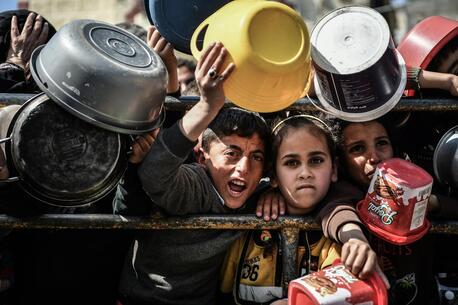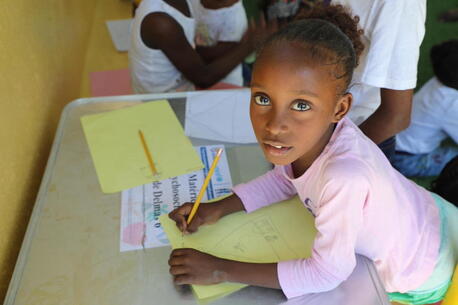Inside Look: UNICEF's Role in the Sahel Humanitarian Crisis Nobody's Talking About
Q&A with UNICEF Representative Marc Vincent, who explains how UNICEF is helping Côte d'Ivoire manage a sudden influx of refugees from Burkina Faso — and ensure that all children, no matter where they are from, can get the health care, nutrition, education and other services they need to survive and thrive. "I do think that the impact we’re already seeing — results from the government’s resilience strategy for strengthening access to social services within the whole region, which we support — will be lasting."
Q: Before we get into the specifics of the current crisis, please tell us more about your role as a UNICEF country representative.
MARC VINCENT: I've been in Côte d'Ivoire since September 2019, just a few months before the pandemic hit. We proceeded to support the government’s response to that emergency, among others, namely, spillover effects from violent conflict, and the drought and malnutrition crisis that has gripped the Sahel for some time.
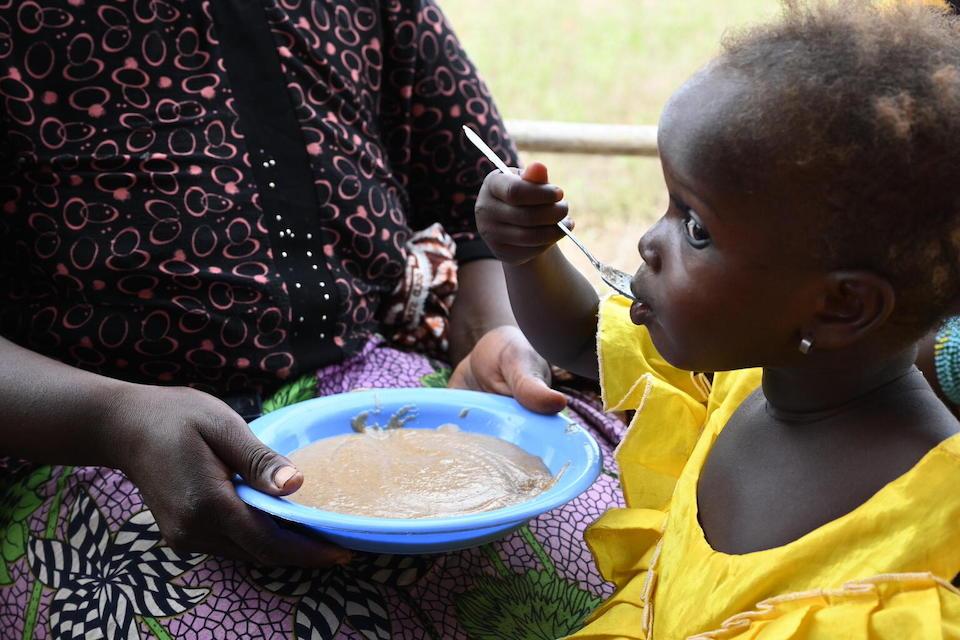
As for my role, the Côte d'Ivoire country office has about 120 people on staff, with most people here in the central office in Abidjan and others working out of two subnational offices located in Korhogo in the north and Man in the West. As country rep I am the overall manager; the country director, or head of office if you will. I provide an orientation and a vision for where we want to go, setting priorities and so forth. I also represent the Executive Director of UNICEF, Catherine Russell, in our interactions with the government and other partners.
Q: Côte D’Ivoire has received tens of thousands of refugees from Burkina Faso since January. Was this a surprise to you and the team, or were you anticipating such a sharp increase? Did you have any warning?
MARC VINCENT: We're now at 22,000 people who have arrived in Côte d'Ivoire since the beginning of the year, coming in from the north. They have been arriving since last year, and their numbers have increased as the security situation in Burkina Faso has deteriorated.
We've definitely seen a big increase in the number of asylum seekers, sometimes linked to specific security incidents involving either extremists or other armed forces and other non-state actors. People are crossing the border because they are anxious about their security and the dangers of being caught in this conflict.
People are opening their doors to strangers. It’s remarkable to see.
These refugees are being hosted by communities in the north. I need to stop here and point out that these communities are among the most vulnerable communities in all of Côte d'Ivoire, in terms of access to social services, access to safe water, health care, nutrition, education etc.
You can imagine the pressure that having a large and growing refugee population puts on these communities. And it’s individual families who are hosting them. Often families will take in other families from the same ethnic group. The border has always been porous, and many people in Côte d’Ivoire have family connections in Burkina and so that also helps explain this welcoming attitude, but people are also opening their doors to strangers. It’s remarkable to see.
Q: How has UNICEF been helping refugee-hosting communities in northern Côte d’Ivoire to prepare, to make sure basic services are available?
MARC VINCENT: The government recently launched a new initiative to reinforce access to safe water, health care and so forth, and we are supporting those efforts, helping to make sure that schools and health care centers are linked to functioning water systems, for example, and helping to build new schools and expand existing ones.
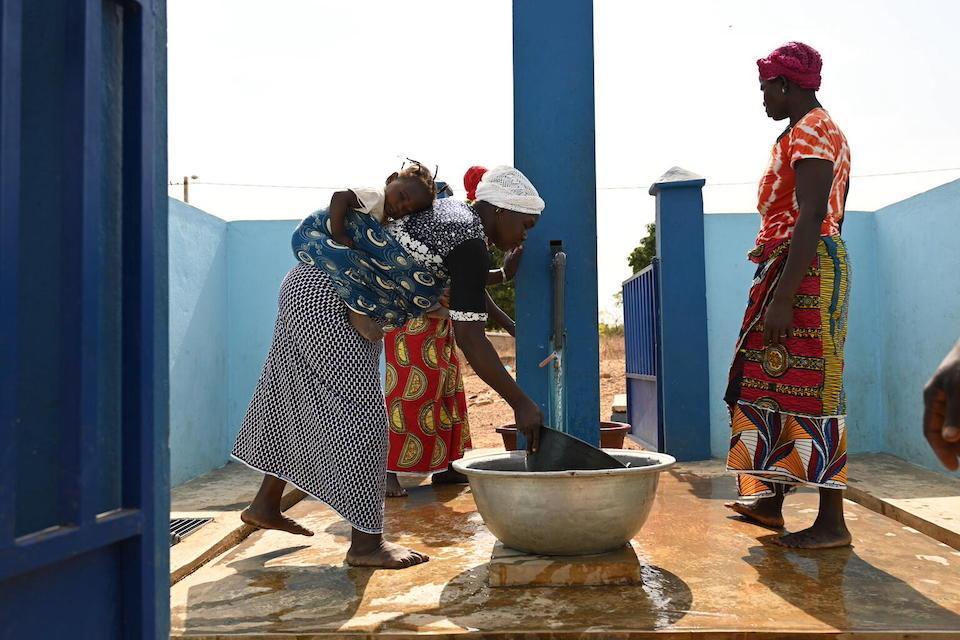
Beyond that we also had a project with the Peacebuilding Fund where we were working with UNICEF Burkina Faso and UNDP[United Nations Development Program], and trying to set up parallel programs that would reinforce access to social services in communities on both sides of that northern border. We had 18 mirror villages on either side of the border where we were doing this.
Unfortunately, the deteriorating security situation has made it harder for our colleagues in Burkina Faso to implement these efforts. So we are looking for other ways of supporting. For example, we have linked women on both sides of the border to exchange and share views and support each other.
We set up a similar platform for youth, I might add. We see youth — they make up 60 percent of the population of Côte d’Ivoire, by the way — as playing an important, fundamental role in peacebuilding in these areas. We have youth ambassadors we’ve helped train in reconciliation techniques, communication techniques. We've trained them on how to present issues to authorities so that they can be better advocates for themselves.
Q: UNICEF often talks about building community resilience to prevent future crises. How are these strategies being applied in this particular context?
MARC VINCENT: Building community resilience is about working with the government and with the communities to reinforce critical systems. For example, for health system strengthening, we focus on building a more robust workforce — this includes training community health workers — and making sure essential medical supplies are available in all the health care centers. With the arrival of so many refugees, of course, the need for services is rapidly increasing.
With the arrival of so many refugees, of course, the need for services is rapidly increasing.
During COVID-19, we saw a dip in the number of children who had received their routine vaccinations. So we’re really focused on working with communities to try to bring immunization coverage back up, and that requires building up local capacities for delivering immunization services.
To improve access to safe water in communities, we help install new systems. We also help establish committees of community members — which are 50/50 men and women — to look after the installations and maintain them, which supports the development of sustainable water systems.
In Lariba, for example, which is on the border of Burkina Faso and Côte d'Ivoire, we managed to put in a solar water pump, an installation that brings water to the school, the local health care center and to the rest of the community.
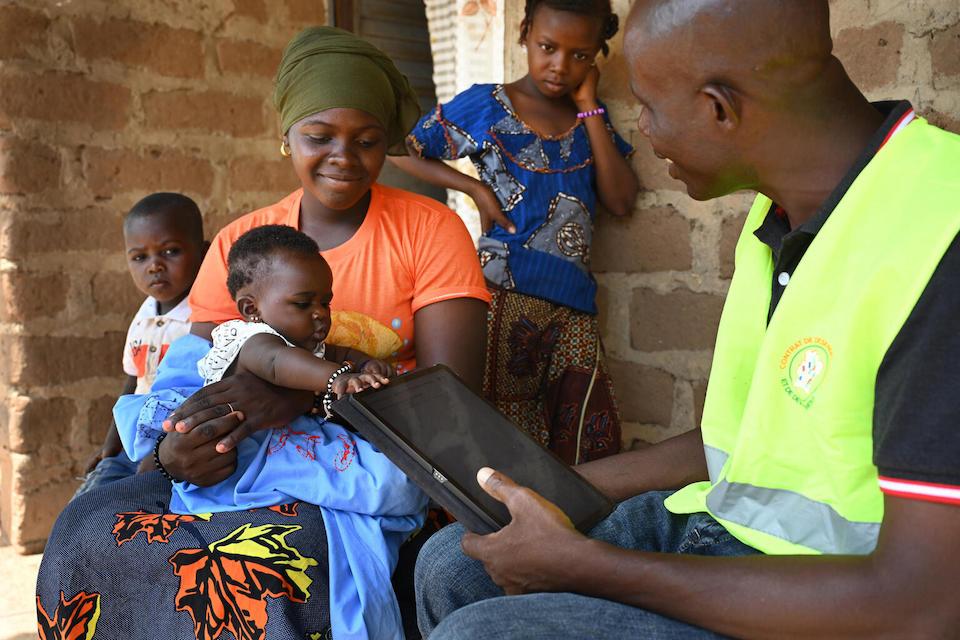
We are looking to do the same thing in other border locales. We are identifying all schools, health care centers and social workers within six miles of the border to see if there are enough resources to support the refugee influx, and to understand what needs to happen in order to build their capacity.
It used to be that women from Côte d’Ivoire would go to Burkina Faso to give birth because it was more affordable. Now, of course, you have many more Burkina women coming to give birth in Côte d'Ivoire. So we have definitely tried to strengthen that capacity, by improving the quality of reception and the staff of the health centers.
Q: Are you seeing many unaccompanied children, young refugees coming in without parents or caregivers?
MARC VINCENT: We have not, thankfully. Mainly families are arriving together. Sometimes it’s just the women coming with their children. Many men prefer to stay behind, look after their property in Burkina Faso.
[T]raversing the frontier has a profound effect ... Children often arrive traumatized from the experience, thirsty and hungry, many malnourished.
But even if the children are traveling with one or both parents, traversing the frontier has a profound effect. The journey is difficult, many families have to flee with nothing but the clothes on their backs. Children often arrive traumatized from the experience, thirsty and hungry, many malnourished from a lack of food during the journey, and sometimes separated from their parents and often weakened by the distance.
UNICEF is setting up protection committees, whose members are from the community and chosen by the community itself, so that we can identify children who need help and connect them to a social worker. This is absolutely critical, because the social workers are not only providing psychosocial support and counseling to the children, but they're also identifying those that might be malnourished and need nutrition support, or might be sick and need health care services. There may be other medical issues, young mothers or pregnant women who need care.
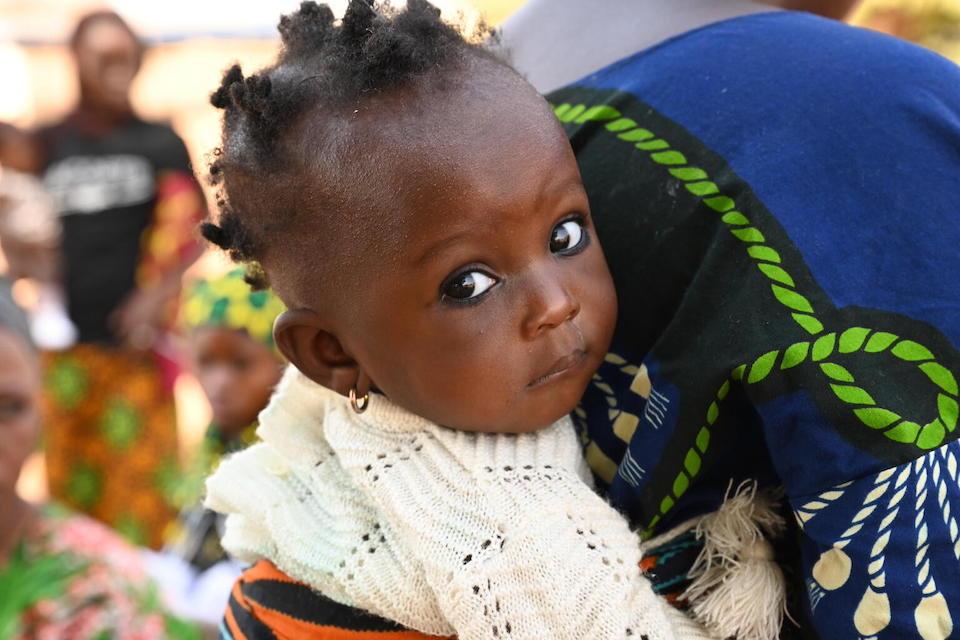
Some of the schools in these host communities, they’ve had to adapt and incorporate up to 100 Burkinabé children. And what we’ve seen is that these communities go out of their way to accommodate these children. Quite often they will have two shifts of classroom time to be able to do this. We’re seeing community schools where retired teachers and other educated Ivorians are leading classes. So these schools have been very accommodating.
What you have to remember is that many children coming in from Burkina Faso have been out of school for some time... So they are really happy to once again have access to an education.
What you have to remember is that many children coming in from Burkina Faso have been out of school for some time because of the conflict there. So they are really happy to once again have access to an education. It’s really quite powerful seeing teachers so interested in making sure that refugee children have the same opportunities as the local children.
I was in Ouangolodougou recently, and I saw all of these women, for example, who had just given birth and they were there getting routine vaccinations for their children at the health care center. It was really great to see that they had that kind of access without any problem.
Q: How is the government of Côte d’Ivoire responding to this situation?
MARC VINCENT: First I’d like to note that the government of Côte d’Ivoire has always been quite welcoming to refugees coming into the country. There are already quite a few people living here who came in from neighboring countries, the borders have always been porous in this part of the Sahel.
In terms of the current situation that is unfolding, as usual, the government is leading the response, with UNICEF and other international actors present and supporting. UNICEF teams on the ground work very closely with the government.
The government has really taken on board that equity issue and they are really working toward social cohesion. The idea is to avoid tensions between the refugees and members of the host communities.
I should point out that the government’s current position is — and rightly so, I think — that they are capable at this point of supporting and integrating refugees, so they haven’t declared the situation an emergency. Not yet.
Q: So it’s mainly capacity building going on?
MARC VINCENT: Yes, and resilience building. Recently the government announced a major resilience-building initiative in the north. I think they are quite aware of the need to address inequalities between Abidjan, which is a thriving metropolis and almost middle-income, and the northern region where you're still seeing development challenges. The government has really taken on board that equity issue and they are really working toward social cohesion. The idea is to avoid tensions between the refugees and members of the host communities.
For example, many of the refugees coming in are herders and so they're coming with their cattle, and basically roaming the area looking for areas for their cattle to graze. This can create tensions with the locals.
Understanding this, I think, the government has decided to open two relocation sites staffed to assist those who want to move from where they currently are, within Côte d’Ivoire. The government has been very clear with us, assuring us that all relocations would be voluntary. The government is also aware of the need to ensure that these relocation sites have housing, have water pumps and latrines, etc., to ensure that the host communities around these areas are not disadvantaged as a result of the influx of refugees.
Q: You mentioned there are others helping to support the government’s response…
MARC VINCENT: Yes, we’re seeing many more NGOs operating in the north now, so there are a lot of people from different agencies to coordinate with. We work with local authorities to support that coordination so that we are all working together in a coherent and efficient manner. And I think we all work very well together.
Q: Are there security concerns?
MARC VINCENT: Yes, there are concerns about warring groups infiltrating the northern areas. For UNICEF, it's always been very important that we keep security issues separate from humanitarian issues. That’s something we are constantly discussing with them, maintaining that separation.
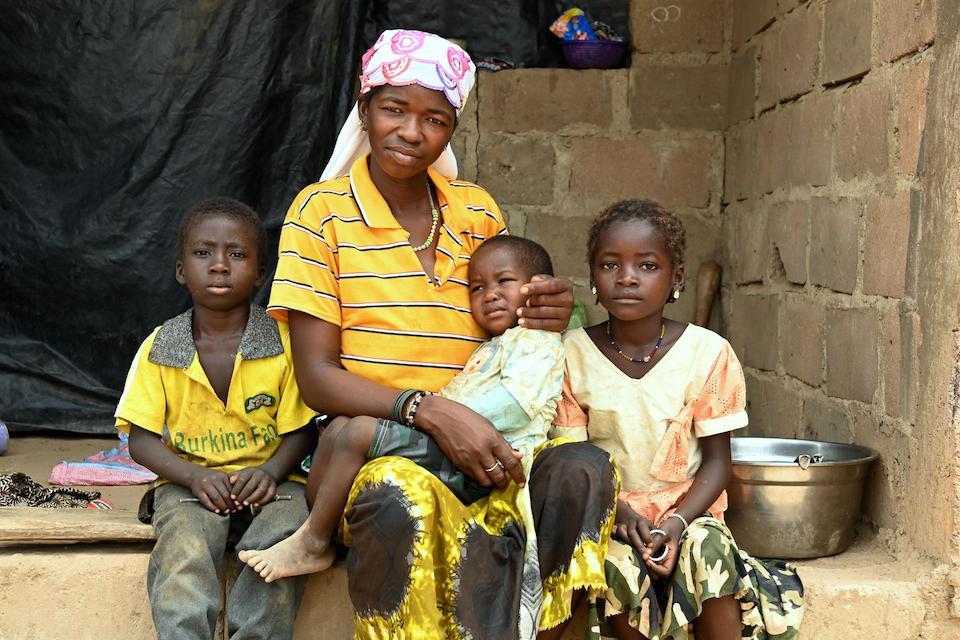
UNICEF/Frank Dejongh
What we've encouraged or advocated for is a separate system, so that the security issues are dealt with separately from the humanitarian issues, because as you know, the humanitarian issues are governed by principles — humanitarian principles of do no harm, maintaining impartiality and neutrality and so forth — and so finding that compromise is important.
I think the government listens to us, but ultimately it's their country, they need to make the decisions and we need to provide the best advice that we can.
Q: With the emergency in Burkina Faso continuing to deteriorate, with over 2 million displaced in the country, it’s clear that those who are crossing the border into Côte d’Ivoire will not be able to return home anytime soon. Are the capacity-building efforts you’ve described sustainable? Will Côte d’Ivoire be able to accommodate these refugees for an extended period of time?
MARC VINCENT: That's an interesting question. Returning to Burkina Faso would have to be voluntary so refugees are likely to stay until they feel it’s time to go back, and that it is safe to go back.
I do think that the impact we’re already seeing — results from the government’s resilience strategy for strengthening access to social services within the whole region, which we support — will be lasting. The new water wells and new classrooms we’re building, those will stay.
Obviously, we hope the civil war in Burkina ends soon. But the most important priority right now is to make sure that children have access to education, nutrition, health care now — and that those services are effective. They were forced to flee. We will be here to support the government as long as it takes.
Q: Any final thoughts based on what you’ve been seeing firsthand?
MARC VINCENT: Recently I was in a village in Tougbo, in the Tchologo region, where the village chief had taken in a group of refugees, moving his extended family out of one building on his property and into his own home to make space. There are a lot of people who have vacated property in order to provide shelter to refugees.
You can build a house relatively quickly using traditional techniques, if you've got the materials. But it’s powerful to see families giving up their own houses to help others from the other side of the border.
Adolescents, the youth in the country, really want to contribute. It gives them such a sense of accomplishment and fulfillment when they have done something for their communities and for the refugee-hosting areas. Facilitating that contribution is an investment in the long-term future of Côte d'Ivoire.
It’s also powerful to see UNICEF in action. Our mandate is extraordinary, I think, in terms of the many areas we operate in, from water and sanitation to education to child protection and social services. We are the largest UN organization on the ground here, and of course the country office has the support of UNICEF’s West and Central Africa regional office, and the national committees, including UNICEF USA.
Adolescents, the youth in the country, really want to contribute. It gives them such a sense of accomplishment and fulfillment when they have done something for their communities and for the refugee-hosting areas. Facilitating that contribution is an investment in the long-term future of Côte d'Ivoire.
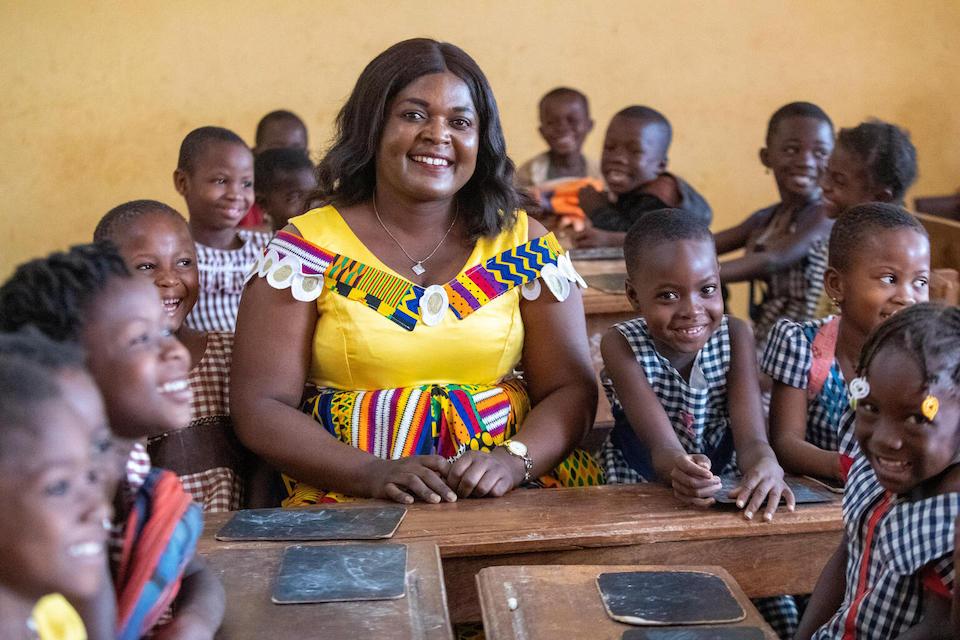
MARC VINCENT: All we need, frankly, is money. Côte d'Ivoire is not a country that has its own humanitarian appeal. There is no emergency funding for Côte d'Ivoire.
I recognize that the world is facing many emergencies, in Ukraine, in Sudan, in Syria and Türkiye, Bangladesh and elsewhere. What is happening in the Sahel is what I would describe as a creeping emergency, with potentially devastating impacts on children, just over a longer period of time. What we don't want to see in the Sahel is an entire generation of children lost.
UNICEF's mission for nearly eight decades has been to provide lifesaving and life-sustaining services and support to the world's most vulnerable children. Unrestricted donations allow UNICEF to allocate resources wherever and whenever they are needed most. Donate today.

